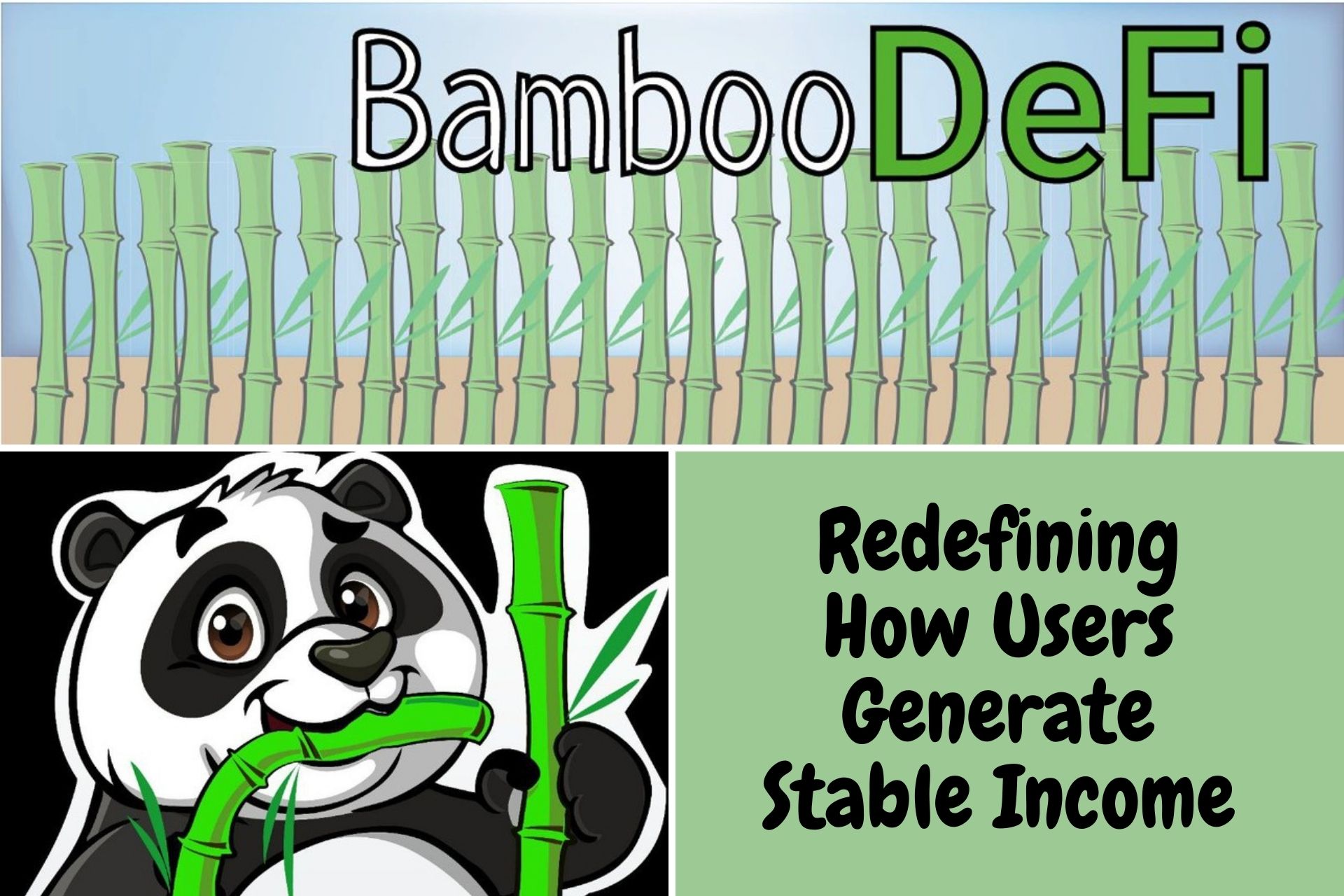Bamboo DeFi | Redefining the Way Users Generate Stable Income

Starting off with good news, Bamboo DeFi has operationalized its IEO or Initial Exchange Offering to be held on 25th December on CHAINX. Bamboo is an Etherum based Decentralized Finance platform developed to facilitate the exchange, storage, and growth of cryptocurrencies.
Bamboo DeFi allows users to earn rewards via multiple systems including yield farming, staking, voting, liquidity pools and providers, raindrop, and the project’s burn yearly party (BBYP). While the liquidity providers are rewarded generously for the contributions, other members and Bamboo coin users can leverage the extensive operational network to engage and earn.
The four-fold performance system makes this platform a better option than other single-tier platforms. Bamboo DeFi has SWAPS commission, generates coins by staking, distribution of dynamic yield multiplier bonds, and 50% of the profit distribution among the liquidity providers.
Bamboo DeFi | Understanding the Key Aspects
Bamboo DeFi is born out of a collaboration between Nexxyo Labs and Kindynos. A new generation DeFi system, this project is built with extended functionalities and better security along with upgraded protocols like a quadruple reward system, staking, temporary blocking, and creating a new canvas for the future of cryptocurrency.
One of the key differences between Bamboo Coin and other DeFi cryptocurrencies is the coin burning. Other coin burnings involve using an eater address with an unobtainable private key. The coins sent to that address are burned permanently, and that number of coins are removed from the total supply.
With Bamboo DeFi, the methodology and the motive of coin burning is a little different. Here, not the developers, but the users have power to burn coins and participate in the Bamboo Burn Yearly Party (BBYP).
BBYP is a token-based lottery system that rewards users who have burned their Bamboo coins. The participation in the BBYP is subjected to the number of coins burned by the users. So besides creating a better market price by burning the supply and benefit from the increase in price, users also stand to gain from the lottery rewards.
Another important aspect to discuss here is the project’s wallet which is a repository of multiple currencies and allows for stronger, safer, and easy transfer services. The same wallet also gives access to staking and provides up-to-date information.
Liquidity Pools on Bamboo DeFi
Bamboo DeFi has done something different and better than other DeFi platforms. Almost every cryptocurrency platform provides rewards to the liquidity providers in terms of interest, and so on. But this project has gone one step further in recognizing the importance of the contributions of liquidity providers. While recognizing the support of early liquidity providers, Bamboo DeFi continues to reward them even after they have withdrawn the initial liquidity. But this comes with a condition that the liquidity providers must have blocked their funds for at least 60 days.
This becomes possible by charging a trading pair fee of 0.3%. This fee will be used to pay the rewards for the present and past liquidity providers.
Along with the liquidity rewards, there is a raindrop system that must but understood together with BBYP. Raindrop is also a game system, and the purpose of this raindrop is to control inflation and lend support to the Bamboo prices while controlling the total and current supply.
The way raindrop works are simple. Users get to purchase unique coin numbers and every 10 days there will be a draw to select 9 numbers. The lucky 9 users will get 90% of the collected purchase fees and 10% will be sent to the Bamboo Vault.
There are two purposes of this vault, one is to support and develop the platform. Second, will help control the emission in Bamboo and further achieve more stability.
The project’s coin is going out of its way to support the community, they have set measures to control the emissions, supply, and ensure that everything runs smoothly.
Some Latest Updates on Bamboo DeFi
After two successful pre-sales and selling 1.2 million Bamboo coins in the latest presale, the project has also become a proud member of the Enterprise Ethereum Alliance (EEA). This further certifies their resolve to bring the best of cryptocurrency solutions and innovations to the project’s community.
To Sum it Up
Bamboo is more than just a DeFi. The Bamboo Card can be used as a credit card and also help facilitate exchange with fiat currency. The future of this platform is well planned and if executed efficiently, it can turn out to be a great platform for beginners as well as veteran cryptocurrency enthusiasts and users.
